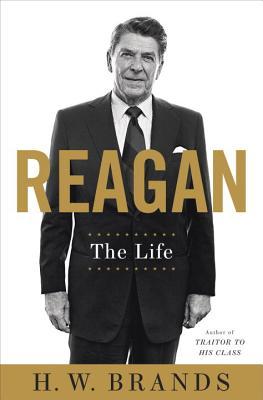Twice a finalist for the Pulitzer, H.W. Brands, in Reagan: The Life, describes the 40th president as a conservative Franklin Roosevelt. What Roosevelt was to the “first half of the twentieth century, Reagan was to the second half.”
The description occurs with enough frequency to become a recurring theme. A short chapter at the book’s midpoint is virtually an itemization of the parallels between the two men. Reagan, Brands says, owned “a felt affinity for his Democratic predecessor, but that affinity was deeper than Reagan acknowledged or probably realized”; Roosevelt, the eastern Democrat, approached the problems of the Depression from the left; Reagan, the western Republican, responded to the problems of the “floundering . . . Great Society” from the right.
Professor Brands’s survey of Reagan’s “intuitionist” statesmanship—those grim realities Reagan faced with the Russians, Grenada, El Salvador—is noteworthy. He seems to have had a realistic understanding of a world often on the verge of anarchy. When Gorbachev succeeded Chernenko as the leader of the Soviet Union, Reagan’s belief in personal diplomacy encouraged his staff to devise what they called “Soviet 101” to prepare him for the meeting that shaped up as “a terribly important moment in the Reagan presidency.” Robert McFarlane, his national security advisor, described Reagan as an “apt pupil,” while Jack Matlock, the diplomat and ambassador, said he was in “many ways . . . the best student I ever had.” He recognized that international affairs are understood more as personal forces in human nature, and less as impersonal or ideological forces.
Purchase Reagan: The Life by H.W. Brands here
Social Security was a dominant issue during Reagan’s first term in office: “[In] his early political career [Reagan] had opposed Social Security on principle, contending people should plan for their own retirements without government compulsion.” Yet, as he “advanced in politics and discovered the popularity of the program, he shifted his objections from philosophical grounds to tactical ones, and he spoke of saving Social Security rather than eliminating it.” Brands implies that Reagan’s New Federalist program (which he announced in his First Inaugural Address to restore to the states the autonomy lost to the federal government during the New Deal) had by 1983 become entangled in the more pragmatic concerns of budgetary issues.
Reagan’s progressivism was an optimistic—albeit muddy—pragmatism. Like Roosevelt, Reagan was aware of the American public’s common sense and made good use of television to appeal to it. His pragmatic concern was to secure the “financial integrity [of Social Security] over the long term” and thus to provide “appropriate benefits to participants.” The commission charged with recommending means to these ends was instructed to deliver its report after the November 1982 midterm elections. The decision to increase tax rates on Social Security disappointed conservatives who, as Reagan himself had previously wished, “wanted to dismantle or privatize Social Security.” When Reagan signed the measure into law in April 1983, Brands notes, he saluted “his hero once more, saying ‘Today we reaffirm Franklin Roosevelt’s commitment that Social Security must always provide a secure and stable base so that older Americans may live in dignity.’”
Brands’s Traitor to His Class: The Privileged Life and Radical Presidency of Franklin Delano Roosevelt is prologue to Reagan: The Life. Both biographies exhibit exhaustive research, and Professor Brands is always in command of his scholarship. At the conclusion of the present biography he argues that what likely helped Reagan most was that
his beliefs relentlessly flattered the American people. Reagan blamed the country’s problems not on the people but on their government, as though the government—in a democracy of all systems—existed apart from the people. . . . He asked next to nothing of the people.
“His message,” Brands concludes, “was an easy sell.”
[Reagan: The Life, by H.W. Brands (New York, NY: Doubleday Press) 805 pp., $35.00]

Leave a Reply